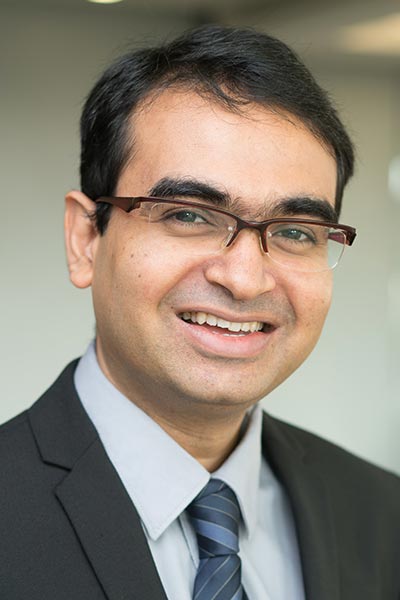Anand Jeyasekharan, MBBS, PhD
Spotlight on the AACR NextGen Stars Class of 2025
Since 2014, the American Association for Cancer Research (AACR) has provided the opportunity for graduate students, postdocs, and assistant professors to give high-profile presentations at the AACR Annual Meeting as part of its NextGen Stars Program. This year, 11 early-career researchers were selected based on their outstanding applications.
Learn more about one of the newest NextGen Stars below, and check out the Q&As with other members of the NextGen Stars Class of 2025.
Anand Jeyasekharan, MBBS, PhD
AACR NextGen Stars Class of 2025
Assistant Professor
National University of Singapore, Singapore
Abstract Presentation:
The spatial organization of lymphoma cells with MYC-BCL2 co-expression shapes the immune microenvironment and determines survival after chemoimmunotherapy
Session Details:
AHM03 – Dissecting and Engaging the Lymphoma Tumor Microenvironment
Monday, April 28, 12:30-2 p.m. CT
Room S401, McCormick Place South (Level 4)
What is the subject of your research?
I work in an area that is broadly called spatial biology in cancer. We’ve given it a new name: cancer cartography. It is almost like making a “map” of a cancer so that we can see which kind of cells and structures are present in which areas of a tumor, and how that relates to clinical outcomes. We use lymphoma as a model for most of our cartography work, partly because I’m a medical oncologist who treats lymphoma patients, and partly because lymphomas show diverse responses to therapy—allowing us to try to understand what spatial features are associated with “cure” in cancer. We are particularly interested in the role of the interplay between the tumor cells and the cells of the microenvironment in mediating relapses after chemotherapy. So, in other words, the role of the immune system in clearing chemotherapy-treated cells to achieve long-term cures.
What sparked your interest in this area of research, and why is it important?
My PhD project was primarily on novel methods in microscopy, so I always had this fascination with trying to “see” things, whether in cells or tumors. But I really got interested in this field a couple of years ago when I started moving from cell biology to using quantitative microscopy in tumors. We’ve known for a long time that the presence of particular cell types and features in the tumor are associated with whether patients relapse or not. But in the last 10 years or so, we’ve seen a real explosion of technologies that have helped us study this in more detail. For instance, we can now stain 50 or 100 proteins at the same time, which allows us to really characterize the different cell types that are present within a tumor, their interrelationships, and how they relate to situations such as cancer evolution or responses to treatment.
What sparked your interest in this area of research, and why is it important?
When I was looking at last year’s AACR Annual Meeting, I saw the NextGen program and there were some really nice talks, and I figured I could apply this year because we had done some interesting stuff in spatial biology.
What do you hope to take away from your experience as a NextGen Star and your time at the AACR Annual Meeting 2025?
I would like to meet the other people who have been given this opportunity, learn from other areas that are deemed to be up and coming, make some contacts for the future, and try to convince people that cancer mapping is important. I’m most interested in meeting people at the AACR Annual Meeting 2025 who are working on the immunology of cancer and people who are developing new technologies. We are early adopters of the currently available spatial biology techniques, but I’d love to see what’s coming up on the horizon and what else we can do with the patient samples that we have.
Follow Along with the AACR Annual Meeting 2025
Keep up with the latest from the AACR Annual Meeting 2025, whether you are attending in person or virtually. Join the conversation on social media using the hashtag #AACR25 and read more coverage of upcoming sessions in AACR Annual Meeting News.


